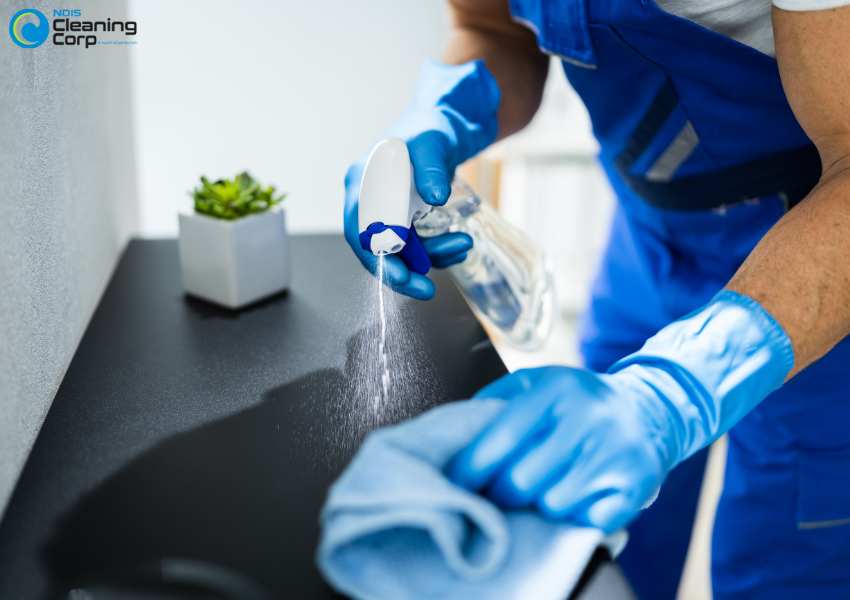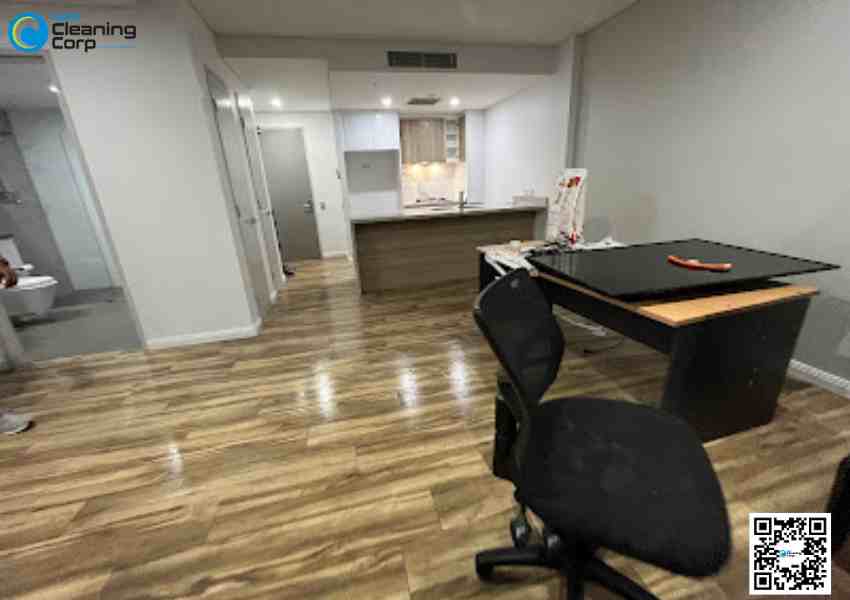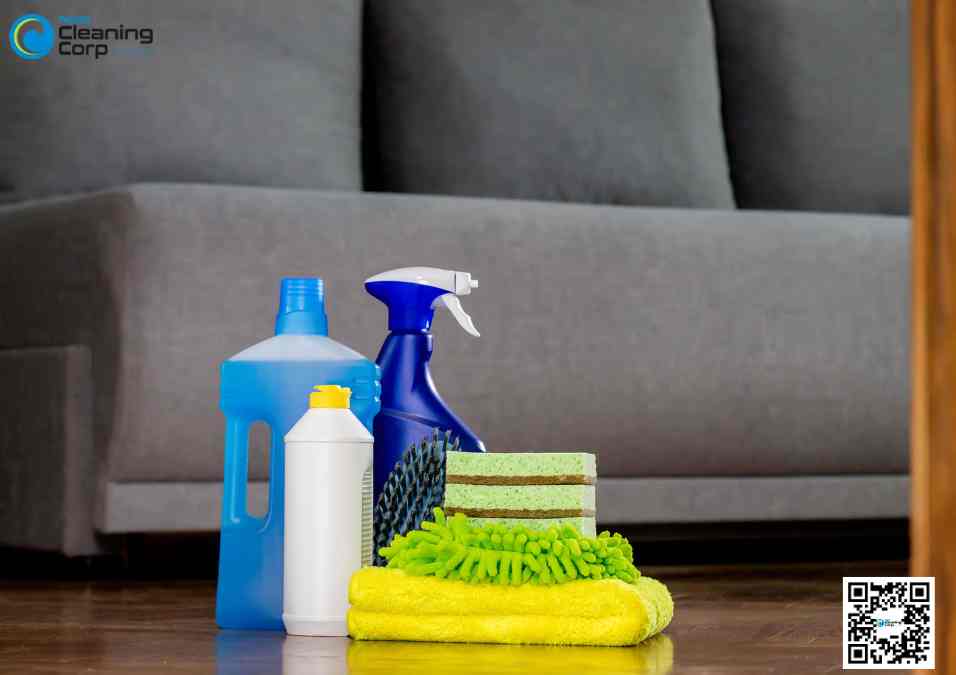Does the NDIS Fund Cleaning Services?
Yes. The NDIS does fund cleaning services — but it...
NDIS cleaning services play a crucial role in maintaining a hygienic living environment for participants.
Imagine waking up each morning in a clean, organized space where everything has its place.
For many individuals with disabilities, a tidy home is not just a matter of aesthetics; it is a fundamental aspect of their health and well-being.
Maximizing your NDIS cleaning services means more than just tidying up; it’s about creating a supportive and healthy environment that enhances daily life.
Research indicates that a clean space can significantly reduce stress levels, leading to improved mental clarity and focus.
Moreover, when cleanliness is prioritized, individuals often feel more empowered and independent, contributing positively to their overall quality of life.
Utilizing expert tips and practical strategies allows you to ensure that your space not only meets cleanliness standards but is also tailored to the unique needs of individuals with disabilities.
This is where the journey begins—let’s explore how to make the most of your NDIS cleaning services.

NDIS, or the National Disability Insurance Scheme, is designed to provide comprehensive support for individuals with disabilities, ensuring they can access the services they need to live fulfilling lives.
But what exactly are NDIS cleaning services?
These services go beyond the typical cleaning tasks; they involve specialized cleaning designed to cater specifically to the unique needs of NDIS participants.
For instance, let’s take the story of Anna, a vibrant 32-year-old living with multiple sclerosis.
After she moved into her new home, Anna realized that the dust and clutter not only affected her allergies but also impacted her energy levels.
With the help of NDIS cleaning services, her cleaning plan was tailored to ensure her home was not just clean but also a sanctuary of comfort.
This customized approach included using hypoallergenic cleaning products, ensuring that surfaces were disinfected regularly, and focusing on the areas that posed the most challenge for her, like her bedroom and bathroom.
Ultimately, the cleaning services enabled Anna to enjoy her home without the worry of allergens or cleanliness, showcasing how these specialized services can dramatically improve the quality of life for NDIS participants.
Why does maximizing your NDIS cleaning services matter?
A clean and hygienic environment significantly impacts the quality of life for individuals with disabilities.
Studies show that maintaining a clean space can lead to improved mental well-being and independence among NDIS participants.
For instance, a research study published in the International Journal of Environmental Research and Public Health found that a clean living space is associated with reduced anxiety and better coping mechanisms among individuals with disabilities.
Consider the story of John, a caregiver for his brother, Mark, who has cerebral palsy.
When John first took over Mark’s care, he noticed that Mark often seemed withdrawn and disengaged.
After implementing a regular cleaning schedule through NDIS services, John observed remarkable changes.
With a clean and organized environment, Mark felt more at ease in his space, leading to increased social interactions and a more positive mood.
Not only did the cleanliness of their home contribute to Mark’s well-being, but it also allowed John to focus on more meaningful activities together, such as hobbies and outings, rather than worrying about housekeeping tasks.
Maximizing your NDIS cleaning services, therefore, isn’t just about the physical cleanliness of a space; it’s about nurturing the overall well-being and happiness of participants, leading to a life filled with dignity and independence.
How important is clear communication with your cleaning service provider?
It’s absolutely vital.
The first step in maximizing your NDIS cleaning services is to communicate your specific cleaning needs clearly.
For example, consider Sarah, who is visually impaired and requires particular attention to detail in her cleaning tasks.
By discussing her unique needs with her cleaning service provider, Sarah ensured that the team understood her requirements, such as focusing on areas that could easily accumulate dust and ensuring that clutter was kept to a minimum.
This kind of open dialogue allowed her home to be maintained to the highest standards, providing her with the peace of mind that her environment was safe and comfortable.
In essence, effective communication establishes a strong foundation for a successful partnership with your cleaning service provider.
Why is it essential to set realistic expectations with your NDIS cleaning services?
Setting achievable goals helps align expectations between NDIS participants and service providers.
Take the story of Emma, who began her journey with NDIS cleaning services with a basic cleaning plan.
Initially, she was overwhelmed by the state of her living space, which had accumulated years of clutter.
However, she learned to set realistic expectations by starting with smaller, manageable tasks, such as focusing on one room at a time.
As her environment evolved, so did her service needs.
Gradually, she expanded her cleaning services to include deeper cleaning tasks like carpet shampooing and window washing, ultimately transforming her home into a welcoming space.
This flexibility highlighted the importance of setting realistic expectations.
Why is scheduling regular cleanings crucial for maintaining a hygienic environment?
Regular cleaning ensures consistency, which is vital for the health and well-being of NDIS participants.
Let’s take a moment to consider the story of Lisa, a cheerful young woman living with a mobility impairment.
Initially, Lisa opted for occasional cleanings, thinking it would be sufficient to keep her home tidy. However, over time, she noticed that the dust began to accumulate and the clutter started to build up.
Thesporadic cleanings did not address the everyday messes, leading to feelings of frustration and discomfort.
After discussing her concerns with her cleaning service, Lisa made the decision to switch to a regular cleaning schedule.
The results were remarkable! With cleanings scheduled every two weeks, her living space transformed into a sanctuary of cleanliness.
Studies indicate that regular cleaning not only reduces allergens and germs but also has a positive impact on mental health. According to research from the Journal of Environmental Psychology, a consistently clean environment can lead to lower stress levels and greater life satisfaction.
For Lisa, having her home cleaned regularly meant fewer respiratory issues and a noticeable uplift in her mood.
By embracing regular cleanings, she could focus on her passions and interests, like painting and gardening, rather than worrying about household chores.
How important is it to personalize your NDIS cleaning plan?
Customizing your cleaning services is essential for addressing individual preferences and specific needs.
Take the example of Michael, a participant with severe allergies.
He required specific disinfection strategies in his living space to ensure that allergens were minimized.
When Michael first began utilizing NDIS cleaning services, he was given a standard cleaning plan that didn’t consider his unique needs.
After some trial and error, he had a candid conversation with his cleaning service provider.
By sharing his specific health concerns and preferences, they developed a tailored cleaning plan that included hypoallergenic products and a focus on high-touch areas like doorknobs and light switches.
This personalization made a significant difference in Michael’s life.
Not only did he notice a reduction in allergy flare-ups, but he also felt a greater sense of control over his environment.
Research from the American Journal of Occupational Therapy supports this, indicating that personalized interventions can lead to better health outcomes and increased satisfaction among individuals with disabilities.
By ensuring that cleaning plans align with individual needs, participants can transform their homes into safe and healthy spaces.
Why is providing feedback invaluable in enhancing the quality of NDIS cleaning services?
Feedback is crucial for refining strategies and improving service quality.
Consider the story of Sarah, who had been using NDIS cleaning services for several months.
She found that while her cleaner did a good job, there were some areas that needed more attention.
Instead of keeping her thoughts to herself, Sarah decided to provide constructive feedback to her cleaning service provider.
She highlighted specific areas she felt were being overlooked and offered suggestions for improvement.
To her delight, her feedback was welcomed and taken seriously.
The cleaning team adjusted their approach based on her insights, leading to an enhanced cleaning experience.
A study published in the Journal of Service Research revealed that service providers who receive regular feedback from clients can improve service quality by 30% over time.
For Sarah, this experience demonstrated the power of communication in achieving cleaning excellence.
When participants take an active role in their cleaning services, they foster a partnership that ultimately enhances their living conditions.
Why is it essential to educate yourself on NDIS guidelines related to cleaning services?
Understanding these guidelines helps participants navigate eligibility criteria and funding options effectively.
Take the case of Tom, a dedicated advocate for his sister, who has a developmental disability.
Tom wanted to maximize the NDIS funds allocated for cleaning services but felt overwhelmed by the guidelines.
After attending an information session led by a seasoned professional, he learned about how to align cleaning service requests with national disability insurance standards.
This newfound knowledge empowered Tom to advocate effectively for his sister’s needs, ensuring they received the full benefits available to them.
According to the National Disability Insurance Agency (NDIA), participants who understand their rights and available services are 40% more likely to utilize their funding effectively.
By educating themselves on NDIS guidelines, participants and their advocates can make informed decisions that lead to better service outcomes.
How can NDIS participants utilize available resources to enhance their cleaning experience?
Participants can access a variety of resources designed to improve their cleaning services.
For instance, consider the story of Anna, who wanted to reduce incidental costs associated with her cleaning services.
After reaching out to her local community center, she discovered a wealth of resources available to NDIS participants, including subsidized cleaning supplies and workshops on effective cleaning techniques.
Anna leveraged these community supports to enhance her cleaning experience significantly.
Research from the Australian Institute of Health and Welfare shows that participants who utilize available resources can reduce their overall cleaning costs by up to 25% while maximizing service efficiency.
What kinds of cleaning services can you expect from NDIS?
The NDIS covers a diverse range of cleaning services designed to ensure that participants can maintain a clean and safe living environment.
This includes basic housekeeping tasks like vacuuming, dusting, and laundry. It also encompasses disinfection services, which are vital for individuals with health concerns, particularly those who may be more susceptible to infections.
For instance, let’s look at Emma, a vibrant individual with a respiratory condition.
She needed specialized cleaning due to her heightened sensitivity to dust and allergens.
By leveraging NDIS funding, Emma’s cleaning service was tailored to include deep cleaning and regular disinfection, making her home a haven of cleanliness that catered to her unique health needs.
According to the National Disability Insurance Agency (NDIA), about 70% of NDIS participants report improved health outcomes when their cleaning needs are adequately met, emphasizing the significance of personalized cleaning solutions.
How can you select the best cleaning service provider for your needs?
Choosing the right provider involves a few key considerations.
Start by looking for providers with strong expertise in the cleaning industry and positive feedback from other NDIS participants.
Let’s consider David, who faced this very dilemma when he first sought cleaning services for his home.
He spent time researching various providers, reading reviews, and asking for recommendations from fellow NDIS participants.
By doing so, he found a provider who not only had extensive experience in the cleaning field but also a deep understanding of NDIS cleaning standards.
Research from the Australian Institute of Health and Welfare indicates that participants who choose providers based on thorough research experience a 25% increase in service satisfaction.
Ultimately, the right provider will help ensure that your cleaning needs are met effectively, allowing you to focus on what truly matters in your life.
Can you request specific cleaning tasks tailored to your needs?
Absolutely! NDIS participants have the right to specify their unique cleaning needs and expectations when discussing their service plans.
For example, let’s take the story of Rachel, a mother of two who required extra attention in her home due to the constant mess created by her children.
She was proactive in her discussions with her cleaning service, requesting that they focus on high-traffic areas and particular tasks like cleaning the children’s playroom and disinfecting the kitchen after meal preparation.
This level of communication resulted in a cleaner home that better suited her family’s lifestyle.
According to a study published in the Journal of Service Management, participants who communicate their specific needs experience a 40% higher satisfaction rate with their cleaning services.
Being clear about your requirements empowers you to take control of your cleaning experience and ensures that you receive the services that matter most to you.
How can you make the most of your NDIS budget for cleaning services?
Maximizing your NDIS budget requires strategic planning and collaboration with your service provider.
Consider partnering with a provider who understands the complexities of NDIS funding and can help develop a tailored plan that fits your budget.
For instance, take Michael, who was initially unsure how to make his budget stretch.
He worked closely with his cleaning service provider to identify which tasks were most essential and which could be performed less frequently.
This collaboration allowed him to prioritize high-need areas while keeping costs in check.
The NDIS Pricing Arrangements indicate that participants who engage in collaborative planning often achieve 15-20% more effective use of their budgets.
By leveraging your provider’s expertise and being mindful of your needs, you can ensure that your budget works for you.
What steps can you take if you’re not satisfied with your cleaning service?
If you’re not happy with the services provided, the first step is to provide feedback to your service provider.
Take the case of Sarah, who faced some challenges with her initial cleaning service.
Rather than settling for mediocrity, she scheduled a meeting with her provider to discuss her concerns.
By articulating her specific issues and expectations, Sarah was able to initiate meaningful changes that greatly improved her service.
Studies have shown that participants who engage in open communication can see a 30% improvement in service quality.
If adjustments aren’t made to your satisfaction, consider exploring options for a change.
It’s crucial to ensure that your cleaning needs are met effectively, so don’t hesitate to advocate for yourself.
Maximizing your NDIS cleaning services can lead to a healthier and more comfortable living environment.
By implementing these top tips and leveraging available resources, NDIS participants can enhance their quality of life and independence.
Take action today to ensure your NDIS cleaning services meet the high standards necessary for maintaining a clean, hygienic, and supportive living space.

Yes. The NDIS does fund cleaning services — but it...

Alright, let’s get straight into it. These are the questions...

NDIS cleaning services are specifically designed to cater to the...

The role of professional cleaning in maintaining a safe and...

Studies consistently show that living in a clutter-free, organized space...